Life
Sign up for our newsletter
We summarize the week's scientific breakthroughs every Thursday.
-
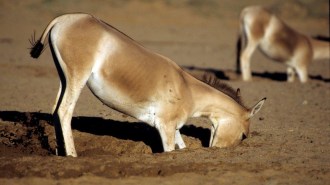 Ecosystems
EcosystemsWild donkeys and horses engineer water holes that help other species
Dozens of animals and even some plants in the American Southwest take advantage of water-filled holes dug by these nonnative equids.
-
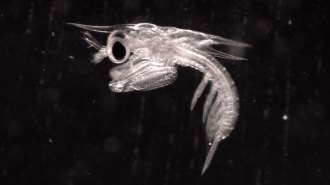 Animals
AnimalsMantis shrimp start practicing their punches at just 9 days old
The fastest punches in the animal kingdom probably belong to mantis shrimp, who begin unleashing these attacks just over a week after hatching.
-
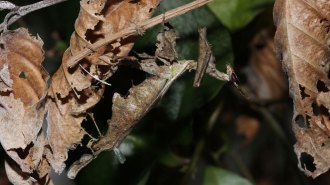 Animals
AnimalsThis praying mantis inflates a strange pheromone gland to lure mates
Researchers stumbled across a first among mantises: an inflatable organ that spreads pheromones, helping mates find each other in the dark rainforest.
By Jake Buehler -
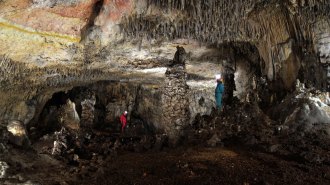 Humans
HumansNeandertal DNA from cave mud shows two waves of migration across Eurasia
Genetic material left behind in sediments reveals new details about how ancient humans once spread across the continent.
-
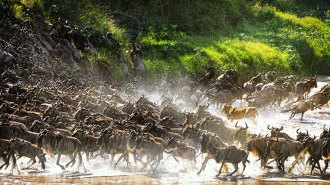 Life
LifeOnly 3 percent of Earth’s land hasn’t been marred by humans
A sweeping survey of terrestrial ecosystems finds that vanishingly little land houses all the animals it used to. Species reintroductions could help.
-
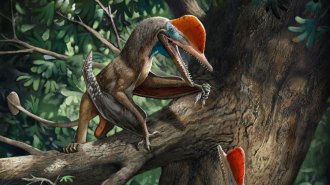 Paleontology
Paleontology‘Monkeydactyl’ may be the oldest known creature with opposable thumbs
A newly discovered pterosaur that lived during the Jurassic Period could have used its flexible digits to climb trees like a monkey.
-
 Anthropology
AnthropologyA coronavirus epidemic may have hit East Asia about 25,000 years ago
An ancient viral outbreak may have left a genetic mark in East Asians that possibly influences their responses to the virus that causes COVID-19.
By Bruce Bower -
 Neuroscience
NeuroscienceSurprisingly, humans recognize joyful screams faster than fearful screams
Scientists believed we evolved to respond to alarming screams faster than non-alarming ones, but experiments show our brains may be wired differently.
-
 Ecosystems
EcosystemsWildfires launch microbes into the air. How big of a health risk is that?
How does wildfire smoke move bacteria and fungi — and what harm might they do to people when they get there?
By Megan Sever -
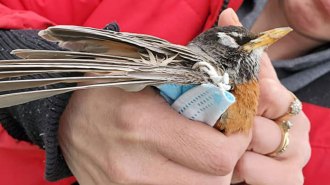 Animals
AnimalsDiscarded COVID-19 PPE such as masks can be deadly to wildlife
From entanglements to ingestion, two biologists are documenting the impact of single-use masks and gloves on animals around the world.
-
 Oceans
OceansCorals’ hidden genetic diversity corresponds to distinct lifestyles
Observation and DNA analysis expose identical reef corals as distinct species with unique ecologies, suggesting much greater coral biodiversity.
-
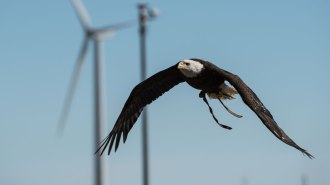 Animals
AnimalsHow researchers can keep birds safe as U.S. wind farms expand
Tracking bald eagle abundance and migrating whooping cranes provides a clearer picture of where wind turbines could be safely built.
By Jack J. Lee